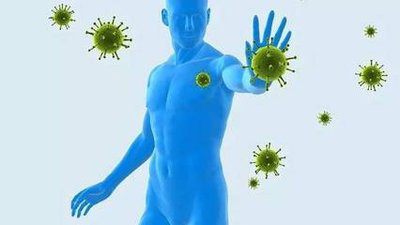
Since the outbreak of the epidemic, temperature measurement has become our daily routine. The textbook says that a person’s normal body temperature is 37°C. However, I wonder if you have noticed that the body temperature of people around us now rarely reaches or exceeds 37°C.

Is the temperature measuring gun not accurate enough? No, it is already a fact that human body temperature has dropped. In 2020, the Stanford University School of Medicine released a survey result: Since the 19th century, the average body temperature of adults has continued to drop, and has dropped by 0.4°C in less than 200 years, from 37°C to 36.6°C.
The drop of 0.4°C seems to be small, but the consequences are not optimistic.
Causes of human body temperature drop
In 1851, a German physician named Karl Wendlich collected data on the armpit temperature of 25,000 patients, and for the first time determined that the normal body temperature of the human body was 37°C. This statement continues to this day.
However, in recent years, many investigations have confirmed that human body temperature is declining, and 37°C has become a history.
There are many reasons for the decrease of modern human body temperature.
Scientists have analyzed that human body temperature has dropped by 0.4°C in 170 years, and the decline has been particularly large in the past 20 years. The main reason is lack of exercise. In the past, people did a lot of exercise every day: rural people wanted to grow crops or graze, even urban people would wash clothes by hand, cook by themselves, and clean the house every day; people would give priority to walking or cycling when going out, and rely on outdoor exercise in their leisure time. Kill time. However, with the development of technology, people are becoming more and more lazy: take out for meals, take a taxi when you go out, wash clothes with a washing machine, wash dishes with a dishwasher, and play games in bed at any time, boys play basketball, girls kick shuttlecock Gone are the campus scenes.

The reduction of modern people’s exercise has led to a general decrease in muscle content; and muscles are the largest heat-generating organs in the human body. Even when a person is doing nothing, muscles are also metabolizing (this is called basal metabolism) and generating heat-we say The normal body temperature is measured in this state. Less muscle means lower basal metabolism and lower body temperature.
Decreased muscle content is also related to life stress. In a state of stress, the human body is in a state of stress, and the body secretes a hormone called “cortisol” to maintain normal physiological functions. However, cortisol breaks down muscles. Life stress leads to long-term excessive secretion of cortisol, excessive muscle breakdown, and body temperature drops.
In addition to the decrease in muscle content, the difficulty in sweating caused by air conditioning is also a major cause of the decline in modern human body temperature. People work and live in air-conditioned rooms for a long time, and the thermoregulatory center of the brain’s hypothalamus loses the opportunity to receive stimulation. Over time, the thermoregulatory center is no longer sensitive to the outside temperature, which leads to a decrease in body temperature.
Decreased body temperature
Studies have shown that every time the body temperature drops by 1°C, the immunity will drop by more than 30%; every time the body temperature rises by 1°C, the immunity will increase by 5-6 times.
The reason why bats are not invaded by poisons and will not get cancer is because their body temperature can maintain a relatively high 40°C. The human body temperature has dropped by 0.4°C in 170 years, which means that our immunity has declined, greatly increasing the incidence of virus, bacterial infections and cancer.
Why is the body temperature lowered and the immunity also lowered?
Our human body has about 60 trillion cells, and the task of blood is to deliver nutrients and oxygen to these 60 trillion cells, and to take away carbon dioxide and other waste products. The white blood cells in the blood can recognize foreign bodies in the body and make a corresponding immune response. When the body temperature is high, the blood flow is fast, and the white blood cells can more quickly find abnormalities in the body, and kill the pathogen in the cradle. On the contrary, the body temperature drops, the blood flow rate slows down, and the efficiency of white blood cells to find foreign bodies and to call other white blood cells to eliminate foreign bodies is greatly reduced. This makes the body susceptible to infection with viruses and bacteria, causing diseases.
In addition, white blood cells can not only resist the attacks of external viruses and bacteria, but also monitor the cancer cells in the body and kill the cancerous cells in time. In fact, even a healthy person produces about 5,000 cancer cells in the body every day. If one of them escapes the surveillance of the immune system and survives, it will soon become 1, 2, 2, 4, 4, 8… and eventually evolve into a tumor. According to scientists’ calculations, if body temperature drops by 1°C and immunity is reduced by 30%, the immune system may miss nearly 1,500 cancer cells every day, allowing them to multiply wildly.
Therefore, a good immune system can quickly identify and eliminate pathogens externally, and timely monitor and kill cancer cells internally. However, if the body temperature is lowered, the immune system is slow to respond and passively sabotage, viruses, bacteria, and cancer cells will all have opportunities.
Knowing the consequences of lower body temperature, what we can do is to increase body temperature appropriately from the little details by strengthening physical exercise, not using air conditioning, and relaxing the mind to relieve stress.
Comments